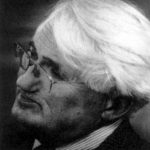Looking for the Good Life
COMMENTARY Looking for the Good Life Bob Brecher It is almost impossible these days to stumble across anything like a vision of the good society lurking even in the background of a left position. From the intellectual void that is the Labour Party, to the labyrinthine morass of postmodern and postfeminist postponements that constitutes the […]



